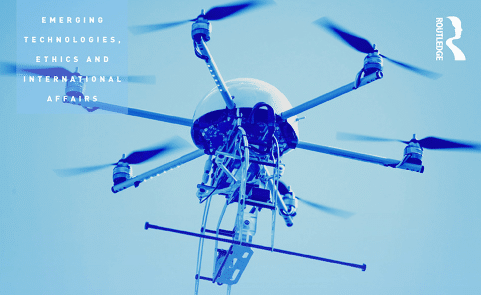While the military use of drones has been the subject of much scrutiny, the use of drones for humanitarian purposes has so far received little attention.
This innovative volume entitled “The Good Drone” aims to explore that gap. It argues that the commercial and military prospects of using drones for humanitarian and other life-saving activities has produced an alternative discourse on drones, one dedicated to developing and publicising the endless possibilities that drones have for “doing good”. Furthermore, it is suggested that the “Good Drone” narrative has been appropriated back into the drone warfare discourse as a strategy to make war “more human”.
This volume explores the role of the “Good Drone” as an organising narrative for political projects, humanitarian action and development. Its essential contribution to the debate is to take stock of the multiple logics and rationales which identify drones as “good”, while initiating a critical conversation about the political currency of “good”. The many possibilities for the use of drones are recognised and taken seriously by the contributors to this volume through their critical examination of the difference that the functionalities of drones can make, but also what difference the presence of drones themselves – as unmarked flying objects – makes. The implications for the drone industry, user communities, and the areas of crisis where drones are deployed are discussed and analyzed.
In addition to contributions by editors Kristin Bergtora Sandvik (Peace Research Institute Oslo/UiO) and Maria Gabrielsen Jumbert (PRIO), The Good Drone includes chapters by Susanne Krasmann (University of Hamburg); John Karlsrud (Norwegian Institute of International Affairs) and Fredrik Rosén (Danish Institute for International Studies); Kristoffer Lidén (PRIO); Brad Bolman (Harvard University); Serge Wich (Liverpool John Moores University), Lian Pin Koh (University of Adelaide) and Lorna Scott (freelancer); and Mareile Kaufmann (UiO/PRIO).
In March 2017, PRIO and the NCHS held an event to mark the launch of this edited volume. You can listen to a recording of that event here.
